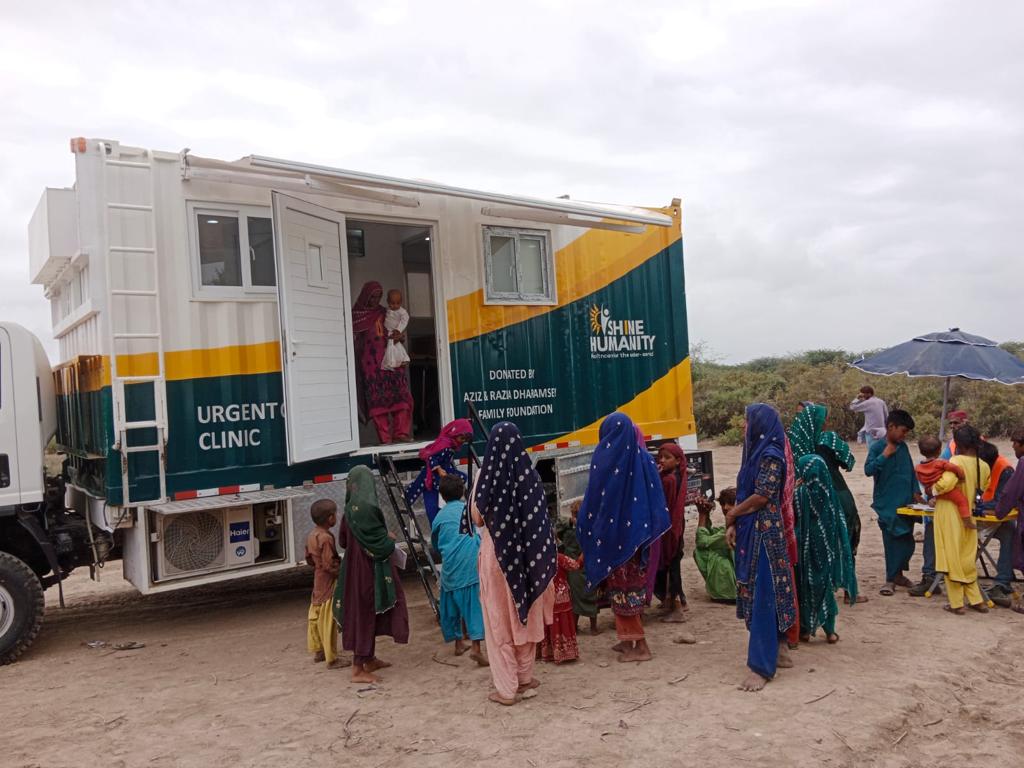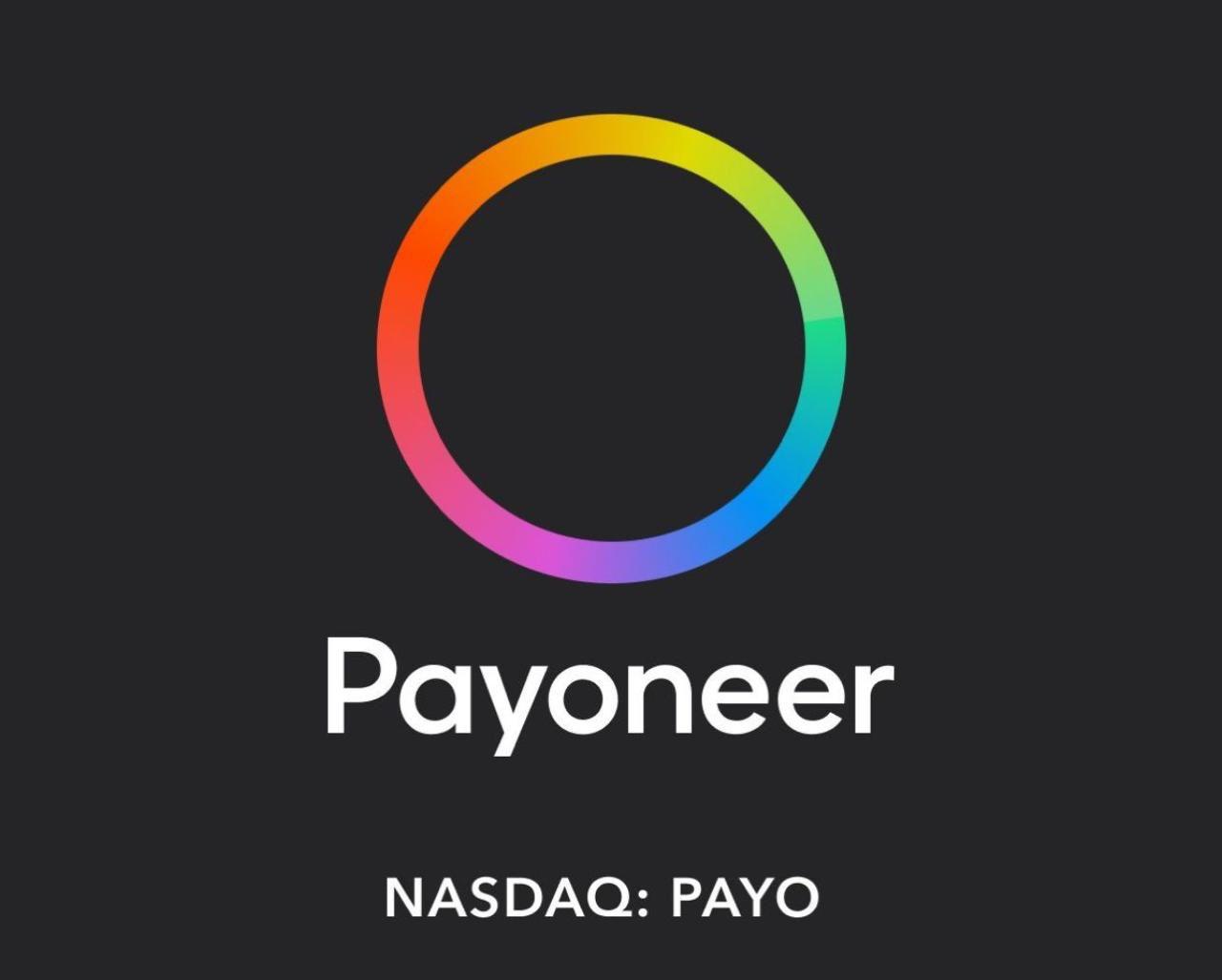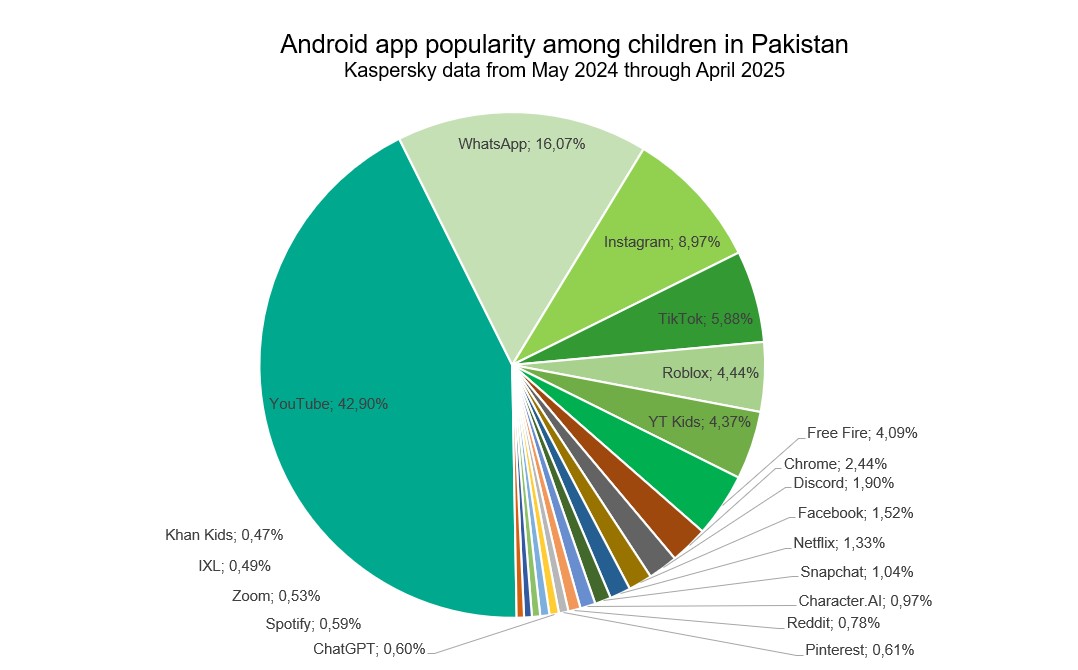In Pakistan top 5 of the most popular Android apps were YouTube, WhatsApp,Instagram, Tiktok and Roblox
Kaspersky has released its annual report on kids’ digital interests with the analysis, covering the period from May 2024 to April 2025. It reveals a growing fascination with AI-powered chatbots. YouTube remains the most popular app among children globally, while WhatsApp overtook TikTok for second place.
In today’s interconnected world, children are engaging with digital technology more than ever before. Recent studies indicate that 8-10-year-old children spend an average of six hours daily on screens, while preteens (ages 11–14) average about nine hours per day. In Pakistan top 5 of the most popular Android apps were YouTube (42.90% of time spent on the platform), WhatsApp (16.07%), Instagram (8.97%), Tiktok (5.88%), and Roblox (4.44%), while Character.AI was 13th in the rating – used 0.97% of time.
In this year’s report, Kaspersky found a surge of interest in artificial intelligence tools. While no AI apps appeared in the Top 20 most-used applications in 2023-2024 time period, “Character.AI” has now entered the list, showing that children are not only curious about AI but are actively integrating it into their digital lives. More than 7.5% of all search queries were about AI chatbots, led by well-known names like ChatGPT, Gemini, and especially Character.AI — a platform that lets users create or interact with bots mimicking fictional or real characters. This marks a sharp rise from last year: in the 2023–2024 report, AI-related queries made up just 3.19% of all searches, increasing more than twice this year.
The most common online activity among kids was searching on Google for streaming platforms — almost 18% of all queries were related to watching videos. Unsurprisingly, YouTube remains the clear favorite Android app, growing from 28.13% to 29.77% over the past year. WhatsApp rose to second place with 14.72%, overtaking TikTok (12.76%), while Snapchat and Facebook continued to decline. This shift may reflect evolving communication habits — children are using chat apps more frequently to share links, memes and short videos with friends.
Video content and games also remained popular topics in children’s search behavior. Platforms like Netflix, Twitch and Disney+ held strong — a trend that also echoed findings from Kaspersky’s recent streaming report, which highlighted how entertainment platforms often become targets for cybercriminals. At the same time, in the gaming world, kids continued to favor Roblox, Minecraft and increasingly, the browser-based portal Poki — a portal offering hundreds of free games, often simple, fast-paced and instantly accessible in a browser.
“This year’s trends show just how fast kids’ digital culture is evolving — one day they’re chatting with AI bots, the next they’re all humming an Italian meme song you’ve never heard of. But behind every trend is a chance for connection. When parents take time to understand what their children are watching, playing or searching for, it opens the door to meaningful conversations — and helps build safer, more trusting digital habits. Apps for digital parenting can be a helpful tool in this journey — not only to protect, but to stay involved,” comments Anna Larkina, privacy expert at Kaspersky.
To keep children safe from online threats, Kaspersky recommends to maintain open communication with children about potential online risks and establish clear guidelines to ensure their safety. Secure gaming experiences by installing a trusted security solution, such as Kaspersky Premium, to prevent malicious file downloads. Introduce children to cybersecurity basics using educational tools like the Kaspersky Cybersecurity Alphabet — a free downloadable book that explains key concepts, cyber hygiene rules, and how to avoid fraud. Use digital parenting apps like Kaspersky Safe Kids to protect children both online and offline, manage screen time, block inappropriate content, and track their location for greater peace of mind.
Learn more in the full report. The findings in this report are based on anonymized data voluntarily provided by users of the Kaspersky Safe Kids parental control solution between May 2024 and April 2025.











